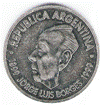Modern Languages and Literatures, Department of

Spanish Language and Literature Papers
Document Type
Article
Date of this Version
November 1994
Abstract
Review-essay on Inventing A-m-e-r-i-c-a; Spanish Historiography and the Formation of Eurocentrism, by José Rabasa.
In Inventing A-m-e-r-i-c-a: Spanish Historiography and the Formation of Eurocentrism, José Rabasa explores both the process of the creation of America via language and the gradual emergence of a European subjectivity key to the colonial enterprise of Europe. Although the author is on the side of those who believe that the New World was not discovered but invented, he disagrees with the notion of invention espoused by Edmundo O’Gorman in his classic La invención de América (1957; 1977). In the end, he states in his introductory essay (“The Critique of Colonial Discourse: An Introduction”) that O’Gorman still erects an “authentic” version of America against which all writings of and about the New World have to be measured. Following closely Foucault’s concept of “discursive formations,” the author contends that America is ultimately the product of the discourse of power. Hence, he is not interested in the veracity of representations of the New World found in chronicles, relaciones and sundry other colonial documents, but in the “production of America as something 'new.'" Rabasa’s is a semiotic and deconstructive endeavour in which are traced the rhetorical and epistemological tools employed in the appropriation of a new territory by a European consciousness. In official accounts, personal letters, world atlases and encyclopedic histories, the author locates the birth of a “thesaurus of New World motifs” such as the noble savage, exotic fauna and flora, cannibalism, and others. Rabasa conceives of historiography as the “writing of the real” and frames his study within the poststructuralist theories germane to an overall critique of “colonial discourse” first marked out by Edward Said in Orientalism (1978). Thanks to these theories, as well as to the theoretical studies of Hayden White, Gayatri Spivak and Homi Bhabha, among others, the author hints at the possibility of rescuing from the interstices of colonial texts the inscription of indigenous voices forgotten until now by historians; as he reminds us, the invention of America also meant the conscious subjugation of indigenous knowledges.


Comments
Published in The Semiotic Review of Books 5:3 (1994). Copyright © 1994 by The Semiotic Review of Books. Used by permission. Article online @http://www.chass.utoronto.ca/epc/srb/srb/colonization.html
Journal home page @ http://www.chass.utoronto.ca/epc/srb/index.html